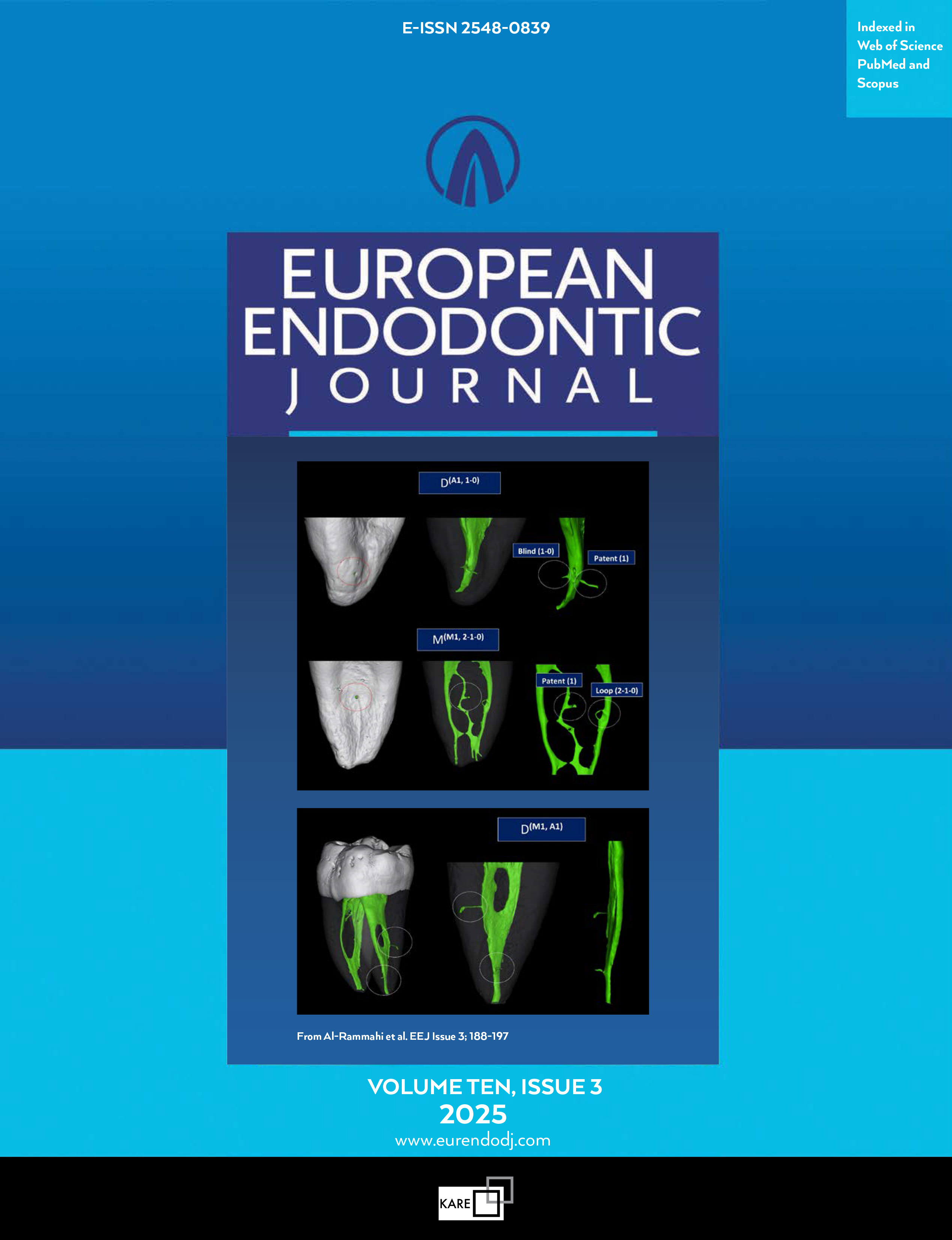Metrics
2024 IMPACT FACTOR
5 year Impact Factor
Eigenfactor Score
2024 CiteScore
Journal Citation Reports
(Clarivate 2025, JIF Rank)
Fracture Resistance of Endodontically Treated Anterior Teeth Restored with Different Post Systems: An in Vitro Study
Abdulrahman Fadag1, Maged Negm1, Abdulaziz Samran2, Ahlam Samran2, Giraldine Ahmed1, Ali Alqerban3, Mutlu Özcan41Department of Endodontics, Faculty of Dentistry, Ibb University, Ibb, Yemen, Faculty of Oral and Dental Medicine, Cairo University, Cairo, Egypt2Department of Fixed Prosthodontics, Restorative and Prosthetic Dental Sciences, School of Dentistry, Ibb University, Ibb, Yemen, School of Dentistry, Dar Al-Uloom University, Saudi Arabia
3Department of Preventive Dental Sciences, Prince Sattam Bin Abdulaziz University, Saudi Arabia and Dar Al-Uloom University, Saudi Arabia
4Department of Clinic for Fixed and Removable Prosthodontics and Dental Materials Science, Dental Materials Unit, University of Zürich, Zürich, Switzerland
Objective: This in vitro study aimed to evaluate the fracture resistance of endodontically treated maxillary central incisors with different post systems.
Methods: Fifty-six extracted intact maxillary permanent central incisors were used, treated endodontically (except for the control group), and distributed into the following seven test groups (n=8) depending on the post type: UHT (control group: root-filled teeth without endodontic post), ZRP (prefabricated zirconia post), GFP (prefabricated glass fiber post), CFP (prefabricated carbon fiber post), CPC (custom-made cast post and core), TIP (prefabricated titanium post), and MIP (prefabricated mixed post). The specimens were loaded in a universal testing machine until fracture occurrence. Failure loads were then analyzed with one-way analysis of variance (ANOVA), followed by multiple comparisons by using Tukeys honest significant difference test (α=0.05).
Results: Mean (SD) failure loads for groups ranged from 524±73.2 N for CPC to 764.1±156 N for GFP. One-way ANOVA showed significant differences in terms of fracture resistances among groups (P<0.001). Tukeys honest significant difference test showed significant differences in fracture resistance within groups (P≤0.05), whereas no difference was observed between the UHT (control group) and CFP and CPC groups (P≥0.05).
Conclusion: Endodontically treated teeth restored with zirconia post, glass fiber post, titanium post, or mixed post were more resistant to fracture loads compared with those that were not restored (control group) or restored with either carbon fiber post or cast post and core.
Manuscript Language: English
(1277 downloaded)


